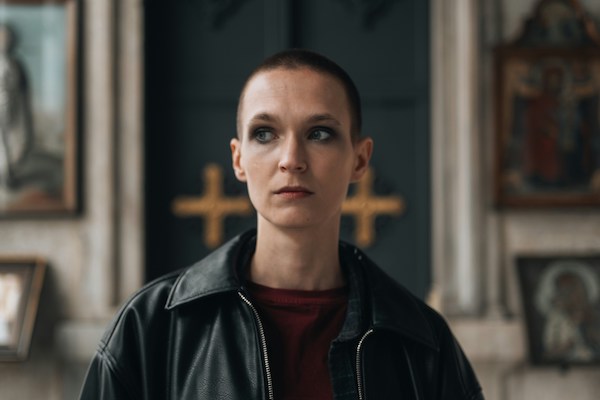It’s the holiday season, and this part of the year is difficult for many LGBTQ+ people who suffer from religious trauma.
According to the Global Centre for Religious Research, religious trauma “results from an event, series of events, relationships, or circumstances within or connected to religious beliefs, practices, or structures that is experienced by an individual as overwhelming or disruptive and has lasting adverse effects on a person’s physical, mental, social, emotional, or spiritual well-being.”
Religious trauma negatively impacts large numbers of the queer and trans community for well-understood reasons. Studies show that millions of LGBTQ+ Americans are affected by religious trauma, especially those who were victims of conversion therapy or were rejected by their family because of their sexual orientation and/or gender identity. Women and LGBTQ+ people that were considered female by birth are particularly vulnerable to religious trauma because of the sexism and heteronormativity commonly practiced in traditional, fundamentalist religious movements.
Despite suffering from religious trauma myself, I first heard the term from my lesbian friend. I was raised in an extremely religious family, by Eastern European standards, and I had known that I was trans since early kindergarten. Because of religious pressure, I went from a joyful child (who was recognized as a girl by birth but used male pronouns and chose male names without any fear and knowledge that other trans people existed) I turned into a gloomy, depressed teenager who believed that they would burn in hell if he wrote the word “God” in an ugly way.
In my teenage years, I was obsessed with Christianity. I was in the middle of severe obsessive-compulsive disorder (OCD) which would not be diagnosed until years later. Because of constant compulsion to pray, I wasn’t able to pass my exams, read, watch movies, or make new friends. Later I would have to take several medications and spend more than six years in therapy to heal from my own religious trauma. But even now, ten years later, I have to look after myself to stay in remission.
Staying mentally healthy has always been tough before the holidays. Here are my own top 5 pieces of advice on how to deal with religious trauma, based on my mental health activism and personal experience.
1.Be honest about what you are dealing with.
First and foremost, it is important to be honest with yourself and acknowledge that you survived religious abuse. The community that was trying to make you believe that you deserve eternal damnation may have the best intentions, but, unfortunately, in our world many terrible things are done with the best intentions. You need to acknowledge that you are dealing with religious trauma, and it is not your fault.
2. Learn—and avoid—your triggers.
Different things—like the Home Alone film, a festive hymn, or a holiday charity dinner with your mother—may be triggering for you.
Society teaches us that growing requires us to “leave our comfort zone.” In reality, this advice often comes from privileged people who had no idea what we survived and are now healing from. For many lesbian, bisexual, and trans women, and non-binary folks, survival itself is resistance. So when you care about yourself enough to think about what exactly is harming you, you are doing something brave and revolutionary.
One of the most important things here is to learn to say “no”—both to your old family “traditions” and to other people who are push you to ignore your well-being.
3.Review your religious ideas.
What you were taught as a child may not reflect your actual beliefs. It may be extremely difficult and even terrifying to examine these ideas, but it needs to be done if you want to have a happy and authentic life. There are a lot of LGBTQ+ affirmative groups and churches that have friendly views on homosexuality and transgender issues, so you may simply want to change your congregation. However, you may realize that Christianity, or whatever organized religion you were raised in, is not for you. You have the freedom to leave all religions behind or convert to another faith.
4. Don’t shy away from looking for support and community.
I wouldn’t be able to deal with my religious trauma without psychotherapy and medications. If you are like me and need therapy, make sure that your therapist is LGBTQ+ friendly and has experience working with religious trauma. You can also seek help in the form of peer-support groups for religious trauma survivors, ex-Christian groups, or LGBTQ+ affirmative churches like Metropolitan Community Church. Sometimes, help may simply look like support from a friend who is ready to listen to what you’ve gone were going through.
5.Accept your emotions, and be creative (if you need to be).
Even if you are careful, holidays may open old wounds, leading to extreme emotional distress or grief. You may begin to mourn your past or the reality that never existed—and it is absolutely understandable because you lost so much by living under norms that negatively impacted your sense of self and perspective of the world around you. Not all of us enjoy creativity, but if you do, let’s use it. Studies show that art can help deal with stress and improve self-esteem. When I was struggling with religious trauma, writing fictional books about religious fundamentalism helped a lot. For you it may be poetry, drawing, singing, role-playing games, or anything that may allow you to process your emotions.
People who have never experienced religious trauma may not understand the intense level of emotional struggle and grief many of us have to deal with during holidays. But I need you to know that I see you, and your feelings are valued. For years religion was used to oppress people like us. And now it’s your turn to create your own holiday traditions—or abandon the idea of holidays altogether.

